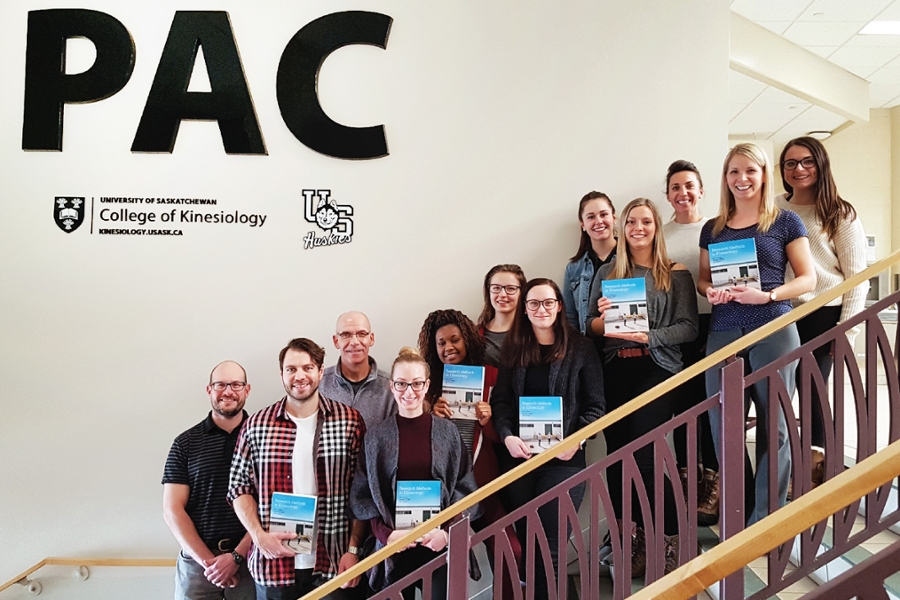
It all starts with research
Sometimes the book you need isn’t waiting on a shelf; sometimes you have to write it yourself
By Amanda DavenportDr. Kent Kowalski and Dr. Leah Ferguson are co-authors on a new textbook, Research Methods in Kinesiology, published by Oxford University Press. In collaboration with their colleagues from the University of Alberta (Dr. Tara-Leigh McHugh) and University of Toronto (Dr. Catherine Sabiston), the textbook responds to four primary needs that have been identified by the team based on their experiences of teaching research methods in the undergraduate programs at their respective institutions:
- the need for a kinesiology-specific research methods textbook
- the need for equal representation of quantitative and qualitative research approaches in kinesiology undergraduate courses
- the need for students to be introduced to respectful approaches in research with Indigenous peoples in Canada
- the need to celebrate kinesiology-related research in Canada.
As highlighted in the book’s introduction, the topic of research methods is perhaps not the most stimulating subject to write about or teach. The inspiration, however, was, “the realization that pretty much anything we know about anything involves the research process in some way.” Research is the critical step that links everything from the physical objects that surround us to the topics covered in every classroom on our campus.
Here in the College of Kinesiology, research is an integral part of the discovery and learning process for both our faculty and students. Introducing students to research methodologies begins at the undergraduate level through courses like KIN 380.3 (Research Methods in Kinesiology) and the One Credit Research Experience. In addition, a First Year Research Experience (FYRE) is built into the curriculum for KIN 121, giving students an early opportunity to interact with the research arc. We are also making commitments to enrich our programs with more Indigenous content and methodologies throughout our courses and teaching. Having a textbook that supports all of these goals, and with a kinesiology focus, will encourage the next wave of innovative research.
The textbook has already been adopted at the University of Alberta and will be used in KIN 380.3 here at the University of Saskatchewan in Fall, 2018. We congratulate our faculty and their co-authors on this exciting publication!
